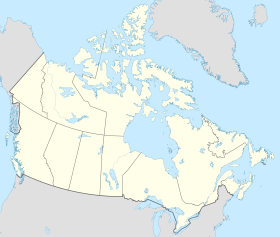Canada is a federation that comprises ten provinces and three territories. Its government is structured as a constitutional monarchy and a parliamentary democracy, with a monarch as its sovereign and a Prime Minister as its head of government. Each of the country's provinces and territories also has a head of government, called premier in English. Collectively, the federal Prime Minister and provincial and territorial premiers are referred to as first ministers. In French, the term premier ministre is used in both the federal and provincial/territorial contexts.
The longest-serving current first minister is Prime Minister Justin Trudeau, who assumed office on November 4, 2015;[note 1] the newest first minister is Susan Holt of New Brunswick, who assumed office on November 2, 2024. The oldest first minister, François Legault of Quebec, is 67; the youngest first minister, P.J. Akeeagok of Nunavut, is 40. Of the current first ministers, two (Danielle Smith of Alberta and Susan Holt of New Brunswick) are women and three (P.J. Akeeagok of Nunavut, Wab Kinew of Manitoba, and R.J. Simpson of the Northwest Territories) are Indigenous.[note 2]
Of the current first ministers, four are from Liberal parties, three are from Progressive Conservative parties, and two are from New Democratic parties - however, note that federal and provincial/territorial parties that share common names are not necessarily affiliated with or politically analogous to one another. Three other first ministers are from locally branded parties (the Coalition Avenir Québec, the Saskatchewan Party, and the United Conservative Party) and two are non-partisan.
Current first ministers of Canada
editPremiers are listed in accordance with the provincial order of precedence: provinces before territories, and by order of joining confederation within those categories; where multiple jurisdictions joined confederation in the same year, they are ordered by population at the time of joining. Incumbency is current as of November 30, 2024.
See also
editNotes
edit- ^ The longest-serving provincial or territorial premier is Scott Moe of Saskatchewan, who assumed office on February 2, 2018.
- ^ Akeeagok is Inuit, Kinew is Ojibwe from Ojibways of Onigaming First Nation, and Simpson is Métis.
References
edit- ^ "Prime Minister of Canada". Government of Canada. Retrieved November 14, 2015.
- ^ "Office of the Premier". Government of Ontario. Archived from the original on February 9, 2013. Retrieved February 11, 2013.
- ^ "Honourable Tim Houston". Government of Nova Scotia. Retrieved August 31, 2021.
- ^ "Office of the Premier". Government of Manitoba. Retrieved May 11, 2016.
- ^ "Office of the Premier". Government of British Columbia. Retrieved July 18, 2017.
- ^ "Office of the Premier of Prince Edward Island". Government of Prince Edward Island. Retrieved February 23, 2015.
- ^ "SCOTT MOE SWORN IN AS PREMIER OF SASKATCHEWAN, APPOINTS FIRST CABINET". Government of Saskatchewan. Retrieved February 2, 2018.
- ^ "Office of the Premier". Government of Newfoundland and Labrador. Retrieved December 15, 2015.
- ^ "Office of the Premier". Government of Yukon. Retrieved December 14, 2016.
- ^ "Longtime politician Paul Quassa chosen new premier of Nunavut". CTV News, November 17, 2017.
External links
edit
